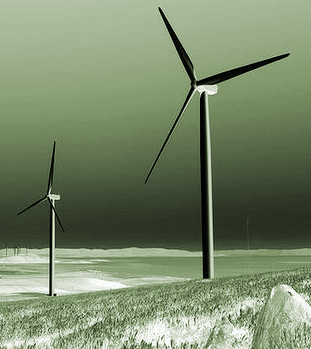Plenty at risk in wind power switch
 The Abbott Government has put international investment, local jobs and its own reputation at risk by instructing the Clean Energy Finance Corporation (CEFC) to move away from wind energy.
The Abbott Government has put international investment, local jobs and its own reputation at risk by instructing the Clean Energy Finance Corporation (CEFC) to move away from wind energy.
As part of a deal with crossbench senators to reduce Australia's Renewable Energy Target (RET), the $10 billion fund has been ordered to stop investing in wind and small-scale solar projects.
Environment minister Greg Hunt says he has told the CEFC its focus must be on new and emerging technologies.
The move has already exposed the Federal Government to ridicule and criticism, with Labor's environment spokesman, Mark Butler, accusing it of “trying to make the job of the CEFC impossible in order to achieve what it's been trying to achieve unsuccessfully through the Parliament, which is to stop it doing its job at all”.
The head of Bloomberg New Energy Finance in Australia, Kobad Bhavnagri, told reporters on Monday that the new directives would lead big investors to look somewhere else.
“I certainly think it makes Australia very unattractive,” he said.
“One has to remember that we are really in a global marketplace for capital, for investment, for employment of companies to come and bring their expertise here and invest their dollars in Australia.
“And likewise we're in a global marketplace where Australian companies, Australian investors, Australian banks can look to pursue opportunities overseas if the environment in Australia is unfavourable.
“And sadly, the conditions created over the last few years, first through the review of the RET ... and now this latest move is just an accumulation of factors and evidence that really say and paint a picture that Australia is not really open for business if you're in the business of wind energy.”
Mr Bhavnagri called the moves a “thinly veiled attempt to put a positive spin on what really is an ideological drive by the Government”.
“The CEFC has a very independent board that will make decisions on what are the best projects and what are the best technologies to invest in for the country and for the industry and for the advancement of renewable energy as a whole,” he said.
“Any political handcuffs that look to shape the operation of a body that will make professional decisions is unhelpful, and it means that the experts can no longer make expert judgments because they are being directed by political players.”
The governing legislation for the CEFC says relevant ministers may give direction on the technologies that are eligible for investment, but that those directives must be consistent with the object of the Act to facilitate “increased flows of finance into the clean energy sector”.
Mr Bhavnagri said it would decimate confidence within the wind industry too, which was only recently buoyed by breakthroughs in RET negotiations.
“When the deal was done on the RET, I think the wind industry as a whole breathed something of a sigh of relief,” he said.
“But that sense of relief and perhaps renewed optimism that investments could be made in the short-term was jolted by some very negative comments by the Prime Minister in the weeks following, saying that he finds wind farms aesthetically displeasing and would love to reduce the target by more if he could.
“These sorts of remarks and these sorts of comments really do send a chill down the spine of any investor who's looking for a stable and predictable policy environment.”








 Print
Print